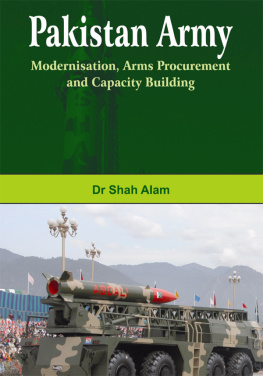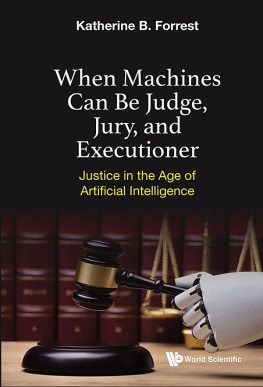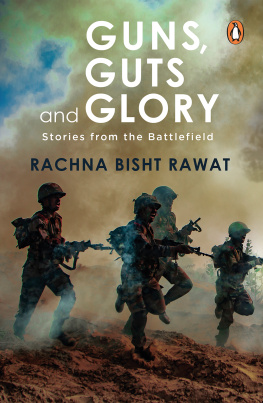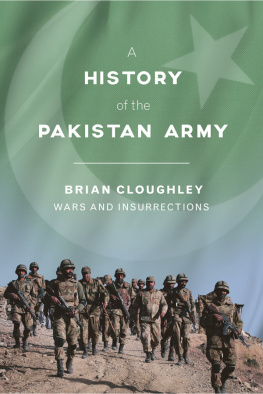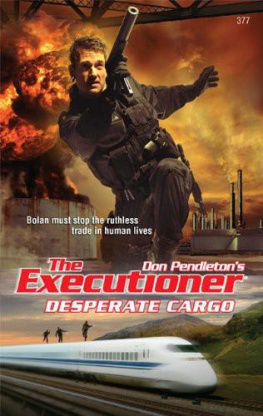Copyright 2016
U C Jha
All rights reserved. No part of this publication may be reproduced, stored in a retrieval system, or transmitted in any form or by any means, electronic, mechanical, photocopying, recording or otherwise, without the prior written permission of the copyright owner.
ISBN978-93-83649-96-9
eISBN978-93-86288-30-1
Published in India by Kalpana Shukla
KW Publishers Pvt Ltd
4676/21, First Floor, Ansari Road, Daryaganj, New Delhi 110002
Phone: +91 11 23263498/43528107
Email: knowledgeworld@kwpub.com www.kwpub.com
A brutal terrorist attack on Army Public School in Peshawar on December 16, 2014, which left 153 dead, most of them schoolchildren, led to the handing over the reign of the internal security to the military in Pakistan. Earlier in June 2014, Operation Z arb-e-Azb (Sharp and Cutting) was launched against the Tehreek-e-Taliban Pakistan (TTP ) by the Pakistan Army and the Air Force. The military forces used heavy fire-power deploying fighter aircraft, helicopter gunship and artillery to destroy terrorist hideouts. The indiscriminate use of force caused large scale collateral damage. According to TTP spokesperson, the killings of school children in Peshawar were meant to avenge the deaths of innocent people in air strikes and artillery bombing during the ongoing military operation.
Since its independence on August 14, 1947, the military has governed the country on several occasions through coups and ruled for nearly half of Pakistans history (1958-70; 1977-88; 1999-2008). In the remaining half, the military has ruled the country by proxy. Its ruling was legitimised by the failed judiciary and the apathy of the population. In spite of its losing four wars and unsuccessfully combating militancy, the military in Pakistan continues to enjoy widespread respect. The democratically elected governments in Pakistan have always functioned under the fear of military take over. A few political leaders did try to rein the military but remained unsuccessful. A number of military officer as well as civilians feel that there was nothing wrong in uprooting a corrupt government that has not only abused public authority, but also undermined national interests.
After the December 2014 attack on the Army Public School, Pakistans Prime Minister Nawaz Sharif vowed, We will continue war against terror till every terrorist has been wiped out from Pakistan. Under pressure from the army, the Pakistan government unveiled a strategic 20-point National Action Plan (NAP) to deal with terrorism in the country. The army had a major role in the drafting to the NAP, which designated prominent role for it at various levels of hierarchy in the states. The Constitutional Amendments were made in hurry, which authorised the military to establish special summary military courts to handle cases of terrorism for a period of two years, ending January 2017. In order to deter crime and terror, the government also lifted the moratorium on the executions to hang people who were on the death-row.
In spite of making tall claims by the military, the terrorist strikes have not ceased in Pakistan. Violence, abuse, and social and religious intolerance by militant organisations and other nongovernmental actors contribute to a culture of lawlessness in the provinces of Baluchistan, Sindh, Khyber Pakhtunkhwa (formerly known as the North West Frontier Province), the FATA and elsewhere in Pakistan. The military is itself responsible for many acts of violence within country and beyond its international borders. The most serious human rights violations allegedly committed by the military and security forces have been extrajudicial and targeted killings, sectarian violence, disappearances, and torture. Lack of government accountability is a main problem, as abuses often go unpunished, fostering a culture of impunity. Millions of people in Pakistan, therefore, continue to live with little or no redress for violations of their human rights.
The Pakistan military, besides defending the State against external aggressions, has played myriad roles in the internal affairs of the country. Every Martial Law Regime abrogated or suspended the Constitution of Pakistan and promulgated new legal order either under the title of Laws (Continuance in Force) Order or under the name of Provisional Constitution Order (PCO). The military regimes have enacted draconian counter terrorism legislations. They have played dominant role in the internal security affairs of the country and held assertive opinion on the issues of foreign relations. The civilian as well as military legal systems were amended by various military regimes to try civilians by military Court Martial which denied them any rights to fair trial. The adventures in economic activities has turned Pakistani military into a giant financial company, extracting patronage from the state and distributing it to its members. This has also led to large scale corruption in the military hierarchy.
In April 2016, the Army Chief has ordered administrative dismissal of a few high ranking military officers. After names of some members of Prime Minister Nawaz Sharifs family appeared in the recent Panama Papers leak, there are reports that the Army Chief has asked the Prime Minister to appoint an independent judicial commission for investigations about the offshore investments. Every military in the world prepares contingency plans to meet any emergent situation. In the case of Pakistan, the army has a unique contingency plan, How to Execute Swift Military Takeover; which has been tried out successfully four times. There are speculations that the Pakistans army is getting ready to take over the government for a fifth time to play its self-acquired additional role of defending national integrity.
This book is about Pakistan military. Military rulers as Martial Law Administrators and the President have abrogated, suspended, or held in abeyance the Constitution of the Islamic Republic of Pakistan. They have undermined the independence of the judiciary and attacked other rights and freedoms guaranteed by the Constitution. The book covers certain legal aspects of the functioning of Pakistan military, their obligations under the IHL while they were deployed in international and non-international (or internal) armed conflict. It dwells upon the efficacy of the military justice system to try civilians through summary military courts in Pakistan. It also examines the efficacy of the military justice system to prosecute military accused who are alleged to have committed war crimes and crimes against humanity during the armed conflict.
Chapter I of the book is introductory; it provides a brief about the military, the constitution and its abrogation under the military regimes, and the civilian court system in Pakistan. In order to overcome the problems experienced by the anti-terrorism courts (ATCs) in the past, the military has established Field General Court Martial (FGCM) for the trial of civilians. The existing military justice system and an overview of the trial by a FGCM under the Pakistans Army Act have been covered in Chapter II. Pakistan has traditionally relied on special security laws. The 1997 Anti-Terrorist Act, the 1998 Armed Forces (Acting in Aid of Civil Power) Ordinance, and the 2014 Pakistan Protection Act have been discussed in Chapter III. Chapter IV critically examines whether the military courts, in particular trial under FGCM meet the international standards of a right to fair trial.








